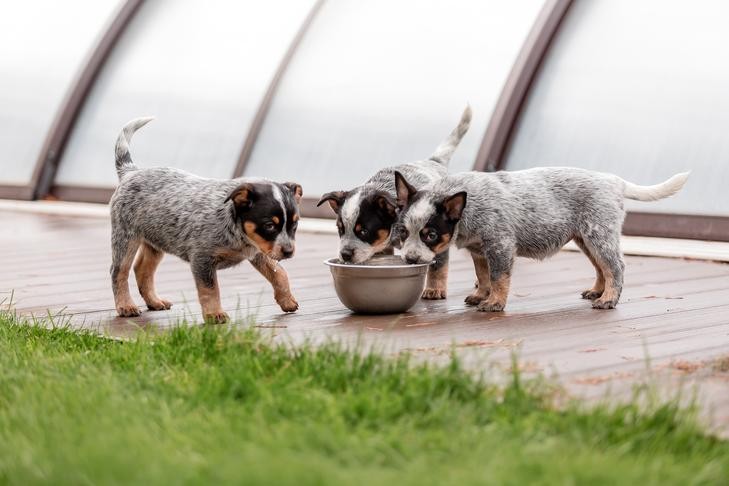Many dog owners wonder if it’s safe to share a little dairy with their furry friends. You might have seen your dog eyeing your milk or even lapping up a spilled drop. The short answer to “Can Dogs Drink Pet Milk?” is it depends. While milk isn’t toxic to dogs, it’s not always the best treat and can cause digestive issues for some. Like many human foods, moderation is key, and understanding your dog’s individual needs is crucial.
Is Milk Safe for Dogs? Understanding the Basics
In small amounts, milk from cows or goats can be an occasional treat for dogs. Think of it as a small reward, perhaps a couple of tablespoons added to their food or offered separately. However, giving your dog a whole bowl of milk at once is generally not recommended. This is because milk is rich in fat and natural sugars, and overconsumption can lead to health problems.
Too much fat in a dog’s diet can contribute to obesity, a widespread issue among pets that can shorten their lifespan and reduce their quality of life. Furthermore, excessive fat intake can also trigger pancreatitis, a serious inflammation of the pancreas that can be very painful and require veterinary treatment.
Lactose Intolerance: A Common Hurdle for Dogs
Dairy products are frequently identified as a source of food intolerance in dogs. A significant number of adult dogs are lactose intolerant. Lactose intolerance occurs when dogs lack sufficient amounts of lactase, the enzyme needed to break down lactose, the sugar found in milk. This means their digestive systems struggle to process milk properly.
Interestingly, some lactose intolerant dogs might tolerate certain dairy products better than others. Hard cheeses and plain yogurt, for example, often contain lower levels of lactose and can be easier for some dogs to digest in small quantities. However, it’s essential to remember that every dog is different, and some may react negatively to all dairy products.
 Australian Cattle Dog puppies drinking from a bowl in the yard.
Australian Cattle Dog puppies drinking from a bowl in the yard.
Recognizing Lactose Intolerance in Dogs: What to Watch For
Dogs exhibit varying degrees of lactose intolerance. Some might show only mild symptoms, while others experience more severe reactions. If your dog is lactose intolerant, you might observe the following signs after they consume milk or dairy:
- Loose stools or changes in stool consistency
- Increased flatulence or gas
- Vomiting
- Signs of abdominal discomfort or pain (whining, restlessness, hunched posture)
- Diarrhea
Often, dog owners only discover their dog’s lactose intolerance after feeding them milk. Determining lactose intolerance can be challenging, especially if a dog consumes a large amount of milk, as this can cause digestive upset even in dogs who are not lactose intolerant. However, if your dog displays these symptoms after consuming even a small amount of milk, it’s a strong indication of lactose intolerance, and milk should be avoided as a treat.
If you suspect your dog might be lactose intolerant or are considering introducing milk or any new food into their diet, it’s always best to consult with your veterinarian first. They can provide personalized advice based on your dog’s health and dietary needs. There are also many other dog-safe treats available that can be healthier and easier for your dog to digest.
